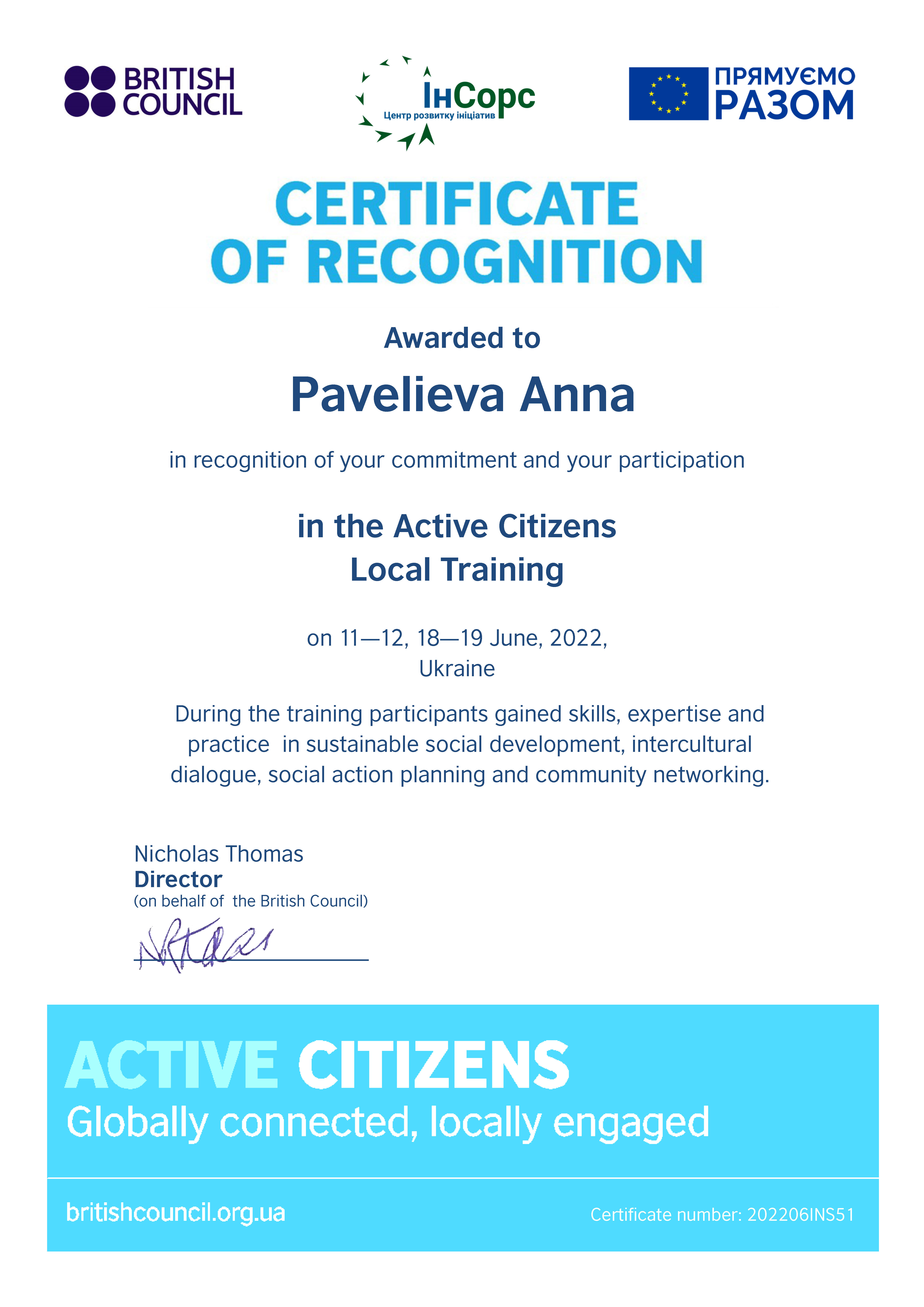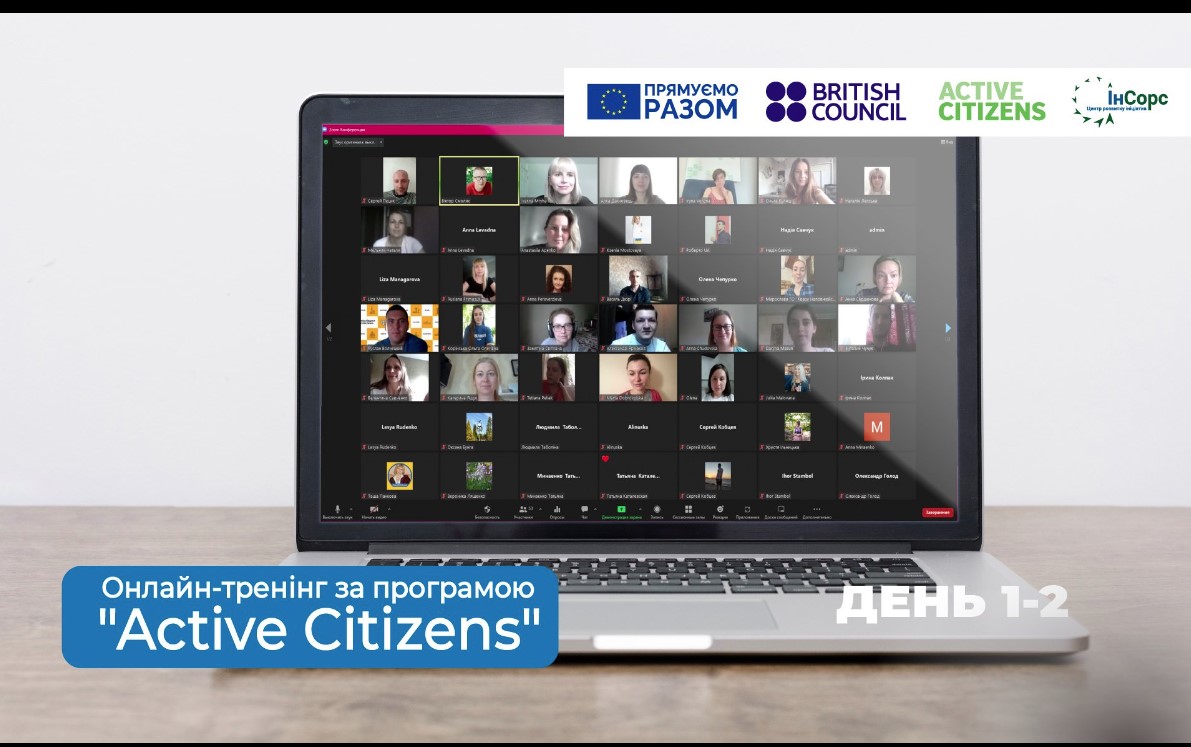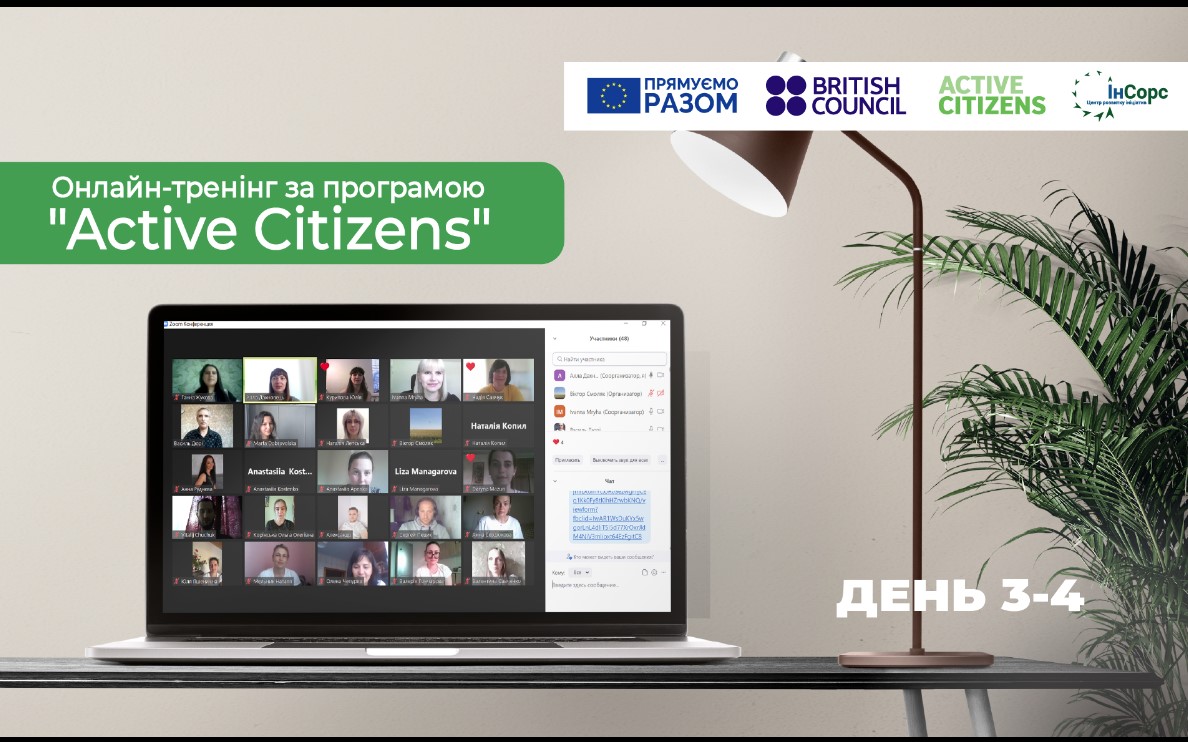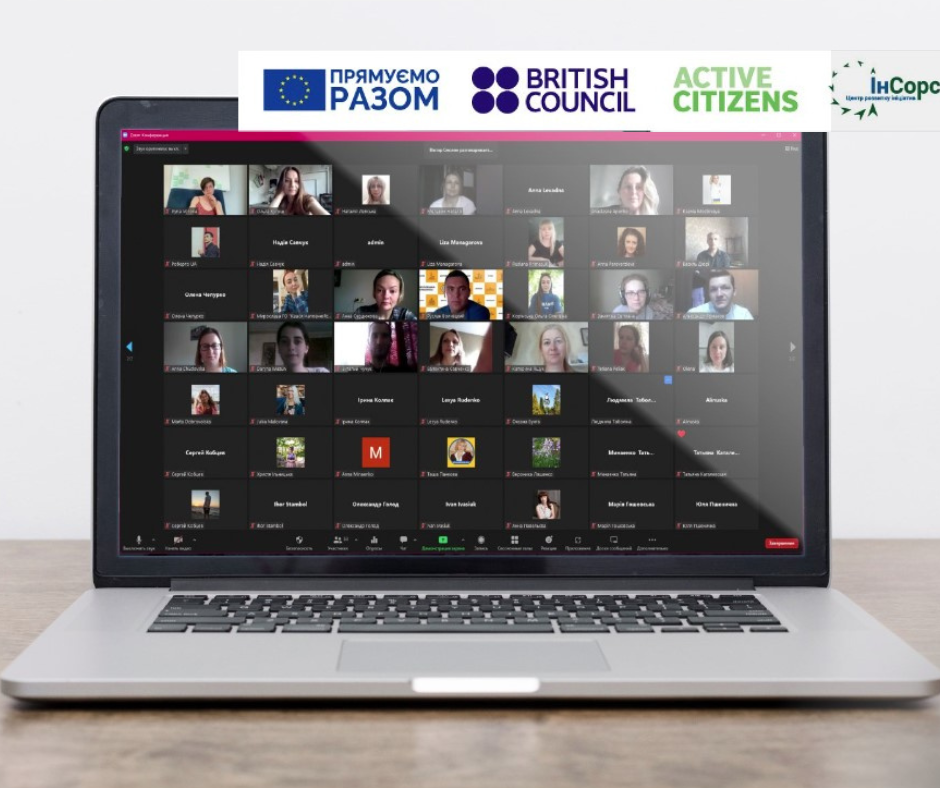On June 11-12 and 18-19, 2022, a 4-day online training was held, organized by the Center for Initiative Development InSource with the support of the project "Strengthening Intersectoral Cooperation for Social Cohesion (SC3)", co-financed by the European Union and the British Council. The National University "Yuri Kondratyuk Poltava Polytechnic" was represented by Candidate of Philological Sciences, Associate Professor of the Department of Germanic Philology and Translation Anna Pavelieva, who became an active participant in the training and received additional professional competencies.

It is worth noting that in 2020-2023, within the framework of the project "Strengthening intersectoral cooperation for social cohesion" (SC3), the British Council and three co-applicants – public organizations "Strong Community", "Youth Platform" and the Kherson regional charity fund "Union" have planned 23 local and 24 regional pitchings of social action projects.





















"Active Citizens" is the British Council's intercultural dialogue and social development programme for young people, launched in 2009 and is currently implemented in more than 78 countries in the Middle East, North Africa, Europe, South and East Asia, North and South America.
The aim of the programme is to promote social changes and ensure sustainable development by creating and building a network of young leaders with the involvement of youth organizations that are the drivers of reforms in their communities and providing them with knowledge and skills that will contribute to building relationships between people on the basis of equality and equal opportunities. respect for diversity, the ability to conduct a conflict-free dialogue. In Ukraine, the project is designed to develop among youth the necessary practical knowledge and skills that would contribute to intercultural dialogue and conflict resolution throughout the country, primarily in the East of Ukraine.
During the training, program participants worked in groups and collectively formed the strategic goal of the "Active Citizens" Programme, learned what the "river of active citizens" is, and worked out the concepts of "gender and sex." On the first day of the training, Module 1 "Me and my identity" was completed, where the individual values of each individual participant and the priorities of an active citizen of Ukraine were discussed. In addition, a lot of attention was paid to the overt and hidden identities of the individual, the homework was to create a Network of Active Citizens on the ‘miro’ board.
During the second day of the training, the participants studied Module 2 "Me and You: Dialogue", where they analyzed the importance of listening to the interlocutor using the example of a parable, studied video plots for the difference between dialogue and other types of communication. The team of coaches was joined by Serhii Tolstikhin, an expert in the development of tourism in communities, the owner of the "Traveler's House" estate, a developer of tourist routes who visited 31 countries of the world by bicycle, the host and author of the TV program on tourism "Activity as a source of changes in the community on the example of the Staroushytska community and Bakota". Serhii presented his experience in the development of tourism at the community level, told about the projects implemented by him and spoke about what he is currently doing and why it is important to develop tourism during the war.
On the third day of the training, the module "Me and You: Community" was worked out and it was discussed who and what decisions are made in the community, how it works "de facto" and "de jure". Volodymyr Pletiuk, an expert on local self-government, coordinator of the Association of United Territorial Communities in the Ternopil region and a member of the Ternopil Branch of the Implementation of UNESCO Programs in Ukraine spoke about the influence of the community image on its sustainable development, the peculiarities of community life during the war, challenges, urgent needs, which they are currently facing. The speaker also shared his own experience in the promotion of territorial communities and gave effective practical advice to the training participants.
On the last day of the training, participants worked on the "Problem Tree", with the help of which they reflected on the most acute problems that Ukrainian communities are dealing with now, including: low level of awareness about mine danger, unbalanced distribution of humanitarian aid, voter passivity, environmental problems in general and the problem pollution of the territory due to military actions, the problem of patriotic education of youth in the post-truth era: which patriot and for which state are we educating?
The topic of the raised problems became the basis for training participants in the development of drafts of future social action projects. Those present also had the opportunity to get acquainted with the theoretical component of the project cycle and the involvement of stakeholders in the initialization of the project idea, planning, implementation, monitoring and evaluation of the project.
According to scientist Anna Pavelieva, participation in such trainings, practical master classes and webinars is a great opportunity for Ukrainian scientists and teachers to gain additional professional knowledge, to attract the best practical experience of contemporaries from different parts of the world to solve problems at the local level and to raise the level of their own scientific intellectual potential.
Previously, a Polytechnic scientist was elected as a coordinator of external communications at the European Council of Postgraduates, Doctoral Students and Young Scientists, became a participant in an Erasmus+ event dedicated to the art of dialogue, joined the jury of the competition of scientific projects on academic integrity, and Polytechnic scientists participated in a webinar dedicated to mobility projects during the war.
Media Center of
National University “Yuri Kondratyuk Poltava Polytechnic”



